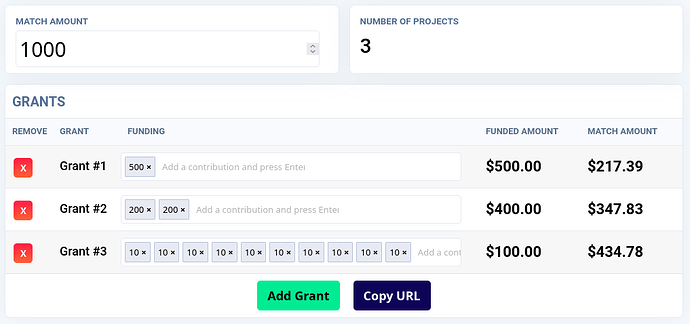Quadratic Funding is a concept tightly linked to digital identity and could be a very good application of Duniter’s web of trust. The concept is to share democratic power despite the unequal distribution of wealth. I’m going to introduce it here because there is no previous sign of it on this forum.
In a standard crowdfunding, projects are selected based on the amount of donation made to it, regardless the number of contributors. Each donation’s power increase linearly with the amount, giving the rich much more power than the poor.
Quadrating funding allow instead to use the concept of identity so that the donation power increases by the square root of the amount, balancing the power of rich compared to the poors. For example, in order to have 10 times more power, a rich would have to give 100 times more money.
From an other point of view, a project’s importance increases quadratically with the number of donnors, which makes this funding method more democratic.
The website https://wtfisqf.com/ allows to experiment with this formula. Example below :
In this screenshot above, a total amount of 1000 units ($, €, Ğ1 or any token you can imagine) is to be shared between three grants (#1, #2 and #3). In a normal crowdfunding, the grant #1 would receive 500 units from a single donnor, which is way more than the 100 units received by grant #3 despite this last one is supported by ten peoples!
On the opposite, in a quadratic crowdfunding, the grant which receives the most tokens is the one choosen by the vast majority of voters, even if they allocated less resources themselves.
- more info on the sources referenced in wikipedia Quadratic voting - Wikipedia
Of course, this requires a digital identity to prevent rich people from giving 500 times 1 unit. That’s what’s achieved by Duniter’s web of trust.
One of the questions which comes first is:
Why would the rich accept such a funding mechanism which decrease their power?
I could argue at length on this issue, but the main reasons I can think of are:
- there is always richer people that they could benefit from (see grant #2 compared to grant #1)
- the rich could give a bit less but spend money on communication to get consent from a lot of people, this would make their donation more efficient
- when funding a project, the rich want to see it succeed, which has more chance when it’s getting validation from group intelligence
- even some rich people can be interested in democracy
Opening: why limit the choice to power 1 (linear funding) and power 2 (quadratic funding)? We could adapt the formula for any number between these two and find a right balance using power like 1.6180339887 or 1.4142135623 for instance (why not).
